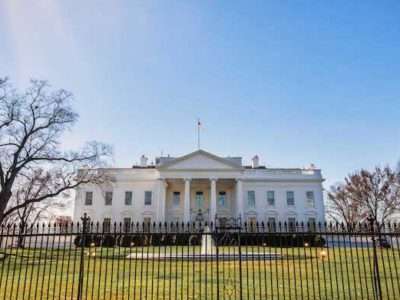
The rap has been that the White House just ignored medical experts and left everything to the politicos. A NY Times story over the weekend reveals that the story was more complicated. It discloses basic failures in management and crisis response since early in the coronavirus outbreak. Those failures should be heeded by future leaders.
The Times attributes the key government decisions since early Spring to a task force led by White House Chief of Staff Mark Meadows. There was only one public health expert in the room, Dr. Deborah Birx.
So let’s stop right there. We already see three crucial errors:
1. Role of the task force. The traditional role of the Chief of Staff isn’t to serve up a “right answer” to the President. Instead, it is to ensure that the President gets a full view of the options, evidence, and arguments. That apparently never happened.
2. Lack of expertise. Why would you want only one person with medical background on the task force? The task force could have at the very least included others experienced in dealing with health issues, even if they weren’t experts on this particular subject. The task force was cut off from key government agencies: No one in the task force represented the CDC, the NIH, or HHS.
3. Blindered Viewpoints. Having only one public health expert guaranteed a very limited spectrum of viewpoints on the disease, which was especially problematic in a situation with rapidly shifting scientific knowledge and many unknowns. Dr. Fauci, who was more pessimistic, was publicly visible but frozen out of the task force, which considered to be a doomsayer.
Now let’s take a look at the membership of the task force. It was designed to minimize the weight given to public health versus politics and the economy. That give us our next two errors:
4. Biased composition. With the exception of Dr. Birx, the task force consisted of officials whose domain was economic or general domestic policy rather than health (one of them an “Acting”), topped off by someone (Hope Hicks) whose assignment centers on the President’s image. That signaled the low weight that would be given to public health risks in making decisions.
5. Lack of crisis experience. Moreover, none of the key task force members seems to have been experienced in crisis management of any kind, rather like sending a group of dermatologists to run the ER.
6. Groupthink. Apart from Birx, the members of the task force all came from Trump’s White House, were predisposed to favor an optimistic view, and reinforced each other’s biases. Meadows himself was a leader of the Freedom Caucus and anxious to get the government, and the federal government in particular, to step away. Dr. Birx was known for her optimistic take on the situation, unlike Dr. Fauci (who was considered a doomsayer). Making her the sole “designated expert” virtually ensured that the pre-existing biases of the group would be reinforced.
BIrx is well regarded as an expert and apparently worked herself to exhaustion. Neither of those is a guarantee against errors, which are all the more likely to come when one person must bear the entire burden of handling difficult technical issues.
Despite her expertise and effort, Dr. Birx seems to have fallen into some traps. That will bring our list of errors up to nine. Resuming the count:
7. Overconfidence in numbers. Birx seems to have been focused exclusively on quantitative data and modeling. While data and models are crucial, they have inherent limits. Those limits were especially important in a situation involving a previously unknown pathogen and disorganized efforts to collect and process data. The lack of adequate testing meant that large parts of the picture were going to be missed. And what is called “model uncertainty” was high, given the novelty of the disease — no one was really sure of the parameters used in the models.
8. Model restrictions. Dr. Birx also seems to have focused too much on a single model, the Washington IMHE model. Failing to take into account other models gave a false illusion of certainty about the direction of the disease.
9. The human element. Birx lost sight of the dynamics of the response. The models all assumed that social distancing rules would remain in effect with consistent compliance. But with the President announcing that the threat was over, Republicans uneasy with government intervention, and Governors widely reopening businesses, it wasn’t very likely that social distancing would remain effective.
To be fair to Dr. Birx, the sources for the NYT story may have spun the facts to shift blame onto her. But given the make-up of the task force, other members probably wouldn’t have been prepared to hear anything but optimism from her anyway. They wanted to believe that it was safe to reopen the economy and for Trump to declare political victory. When Birx did urge caution, as with her suggested guidelines for when it would be safe to reopen, everyone ignored them. Mary Poppins said “a spoon full of sugar makes the medicine go down,” but the task force was predisposed to swallow only the sugar.
So here are the takeaways:
- Ensure that the crisis team has diverse viewpoints.
- Don’t pack it with political advisors.
- Don’t have only a single expert on the team.
- Don’t be overconfident of data and models in an uncertain, fluid crisis.
- Do ensure that the team includes experienced crisis managers.
- Take into account human behavior.
None of this is rocket science. It’s basically Crisis Management 101. And it wasn’t heeded.
The post How NOT to Manage a Crisis appeared first on Legal Planet.
By: Dan Farber
Title: How NOT to Manage a Crisis
Sourced From: legal-planet.org/2020/07/20/how-not-to-manage-a-crisis/
Published Date: Mon, 20 Jul 2020 14:49:13 +0000
Vist Maida on Social Me
Website Links
Maida Law Firm - Auto Accident Attorneys of Houston, by fuseology

No comments:
Post a Comment